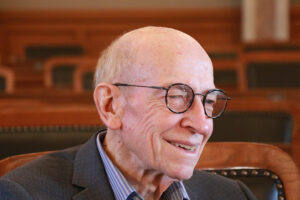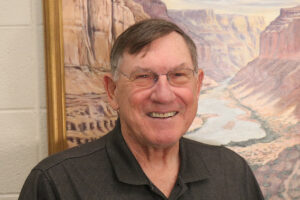Interview of Kathleen Sebelius, January 18, 2023
Interviewed by Rex Buchanan
In this 2023 interview of Kathleen Sebelius by Rex Buchanan, the former Kansas governor explored key energy and environmental issues and how they were addressed during her administration (2003-2009). Those issues included rejection of a new coal-powered electricity generation plant in western Kansas, voluntary protection of the 'heart of the Flint Hills' from wind farm development, and increased pressure on the state's dwindling water supplies. Sebelius attributes many of the energy and environmental approaches of her administration to the expertise and creativity of her cabinet, including Rod Bremby, Secretary of Show MoreHealth and Environment, former Governor Mike Hayden who served as Secretary of Wildlife and Parks in the Sebelius cabinet, and Joe Harkins, a trusted advisor. This interview was recorded by Dave Kendall for Prairie Hollow Productions, LLC. Portions of this interview were included in the documentary ‘Hot Times in the Heartland.’ The Kansas Oral History Project, Inc. is grateful to former Governor Sebelius, Rex Buchanan, and Dave Kendall for granting permission to include this interview in the KOHP Energy & Environment collection of oral histories.
Highlights -- short excerpts from the interview




